Table of Contents
- Introduction
- Understanding the RTI Act 2005
- Role of RTI in Promoting Good Governance
- Impact of RTI on Various Sectors
- Challenges and Limitations of the RTI Act
- Success Stories of RTI in Action
- How to File an RTI Application
- Role of RTIwala in Facilitating RTI Applications
- FAQs
- Conclusion
Introduction
The Right to Information (RTI) Act 2005 is a significant law in India that empowers citizens to seek information from public authorities. This act is crucial for promoting good governance by making government operations more transparent and accountable. In this article, we’ll explore how the RTI Act has contributed to good governance in India and how you can use it effectively. We’ll also explain how RTIwala can help you in this process.
Understanding the RTI Act 2005
The RTI Act 2005 allows citizens to request information from any public authority, which includes government departments, public sector organizations, and local bodies. The aim is to make the functioning of these authorities transparent and accountable. The law ensures that citizens can access information about government decisions, policies, and activities.
Role of RTI in Promoting Good Governance
The RTI Act plays a crucial role in improving governance in several ways:
- Transparency: By mandating that public authorities provide information upon request, the RTI Act ensures that government operations are open to scrutiny. This transparency helps build trust between the government and the public.
- Accountability: When citizens can access information about how decisions are made and funds are used, public officials are more likely to act responsibly and ethically.
- Citizen Participation: RTI empowers citizens to be more involved in governance by providing them with the information needed to participate in decision-making processes and hold authorities accountable.
Impact of RTI on Various Sectors
- Enhancing Transparency
The RTI Act has led to greater transparency in government operations. For instance, information about government spending, project implementations, and policy decisions is now accessible to the public. This openness helps reduce corruption and ensures that government resources are used effectively.
- Combating Corruption
The RTI Act has been instrumental in exposing corrupt practices. Many instances of misuse of public funds and irregularities have come to light through RTI applications. By requesting information, citizens can identify and report corruption, leading to corrective actions.
- Empowering Citizens
The RTI Act empowers individuals by giving them the right to seek information and ask questions about government activities. This empowerment leads to a more informed and engaged citizenry, which is essential for a functioning democracy.
- Improving Public Services
Public services have improved due to the accountability enforced by the RTI Act. Citizens can use RTI to check the status of services such as healthcare, education, and public utilities. This scrutiny encourages public authorities to provide better services and address grievances promptly.
Challenges and Limitations of the RTI Act
While the RTI Act has made significant strides in improving governance, it faces some challenges:
- Delayed Responses: Sometimes, public authorities delay responding to RTI requests. This can be frustrating for those seeking timely information.
- Lack of Awareness: Not all citizens are aware of their rights under the RTI Act, which limits its effectiveness. Educating the public about RTI is crucial.
- Resistance from Officials: Some officials may resist providing information or may not comply fully with RTI requests.
- Inadequate Infrastructure: The infrastructure to handle RTI requests is sometimes lacking, leading to inefficiencies in processing applications.
Success Stories of RTI in Action
The RTI Act has led to numerous success stories across India. Here are a few examples:
- Case Study 1: An RTI application uncovered irregularities in a public distribution system, leading to a review and overhaul of the system.
- Case Study 2: RTI was used to expose delays in the disbursement of pensions, which led to faster processing and payment to deserving beneficiaries.
- Case Study 3: A citizen used RTI to get information about the construction of a public park, resulting in improved facilities and maintenance.
How to File an Online RTI Application
Filing an RTI application is a straightforward process:
- Identify the Information Needed: Determine what specific information you need from the public authority.
- Draft Your RTI Application: Write a clear and concise application specifying the information you are requesting. Make sure to follow the guidelines of the RTI Act.
- Submit the Application: You can submit your RTI application online through the RTIwala website of the respective public authority or in person at their office.
- Pay the Fee: There is a nominal fee for filing an RTI application. This fee varies depending on the state and type of information requested.
- Follow Up: Track the status of your application and ensure you receive a response within the stipulated time frame.
Role of RTIwala in Facilitating RTI Applications
RTIwala simplifies the RTI filing process by providing expert assistance. They help you draft, file, and follow up on your RTI applications, ensuring that you get timely and relevant information. Whether you need help understanding the RTI Act or facing challenges with your application, RTIwala is here to support you.
FAQs
- Q1: What types of information can I request under the RTI Act?
- You can request information about any government activity, policy, or decision. This includes documents, records, and other relevant details.
- Q2: How long does it take to receive a response to an RTI application?
- Public authorities are required to respond within 30 days. If they do not, you have the right to file an appeal.
- Q3: Can RTI be used to access information from private organizations?
- No, RTI applies only to public authorities. However, information about private entities held by public authorities can be requested.
- Q4: What should I do if my RTI application is rejected?
- You can appeal the decision to the appellate authority if your application is rejected.
- Q5: How can RTIwala assist me with my RTI application?
- RTIwala offers services to help you draft, file, and track your RTI applications, ensuring you receive the information you need efficiently.
Conclusion
The RTI Act 2005 has made a substantial contribution to good governance in India by promoting transparency, accountability, and citizen engagement. Despite some challenges, the act remains a powerful tool for enhancing governance and ensuring that public authorities serve the interests of the people. For expert assistance with your RTI applications, contact RTIwala and make the most of your right to information today!












































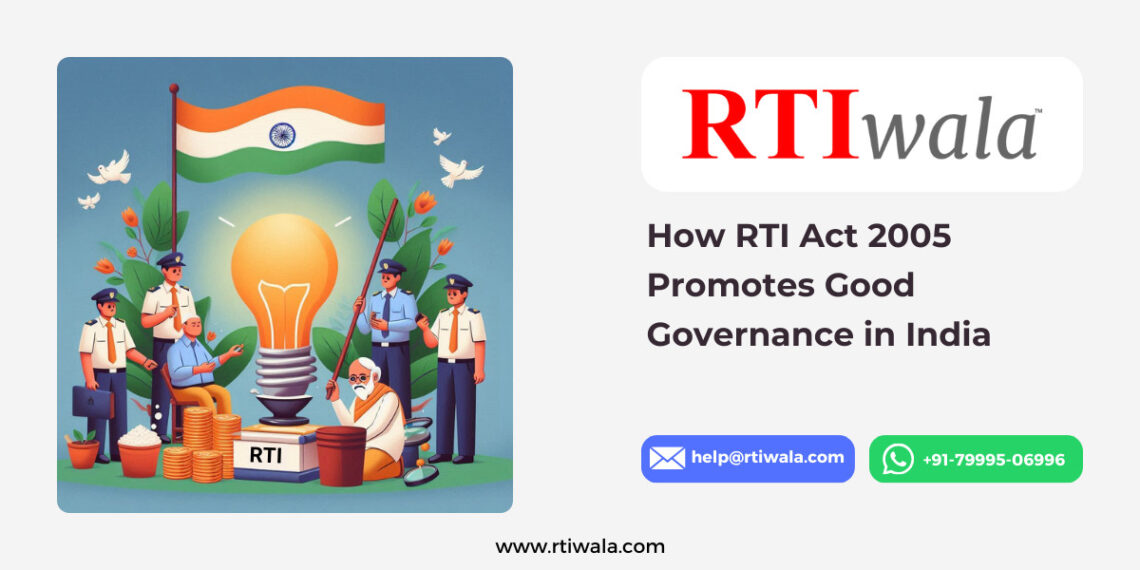

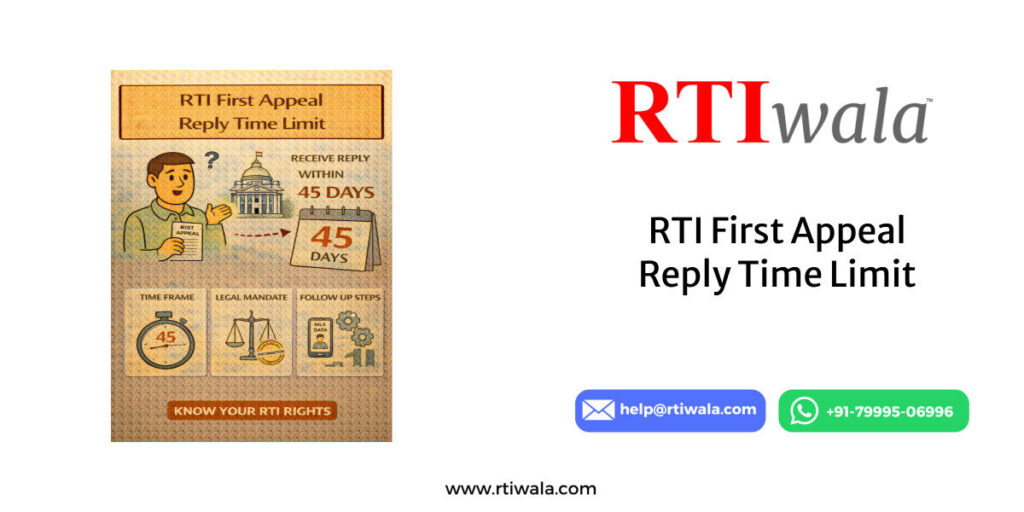


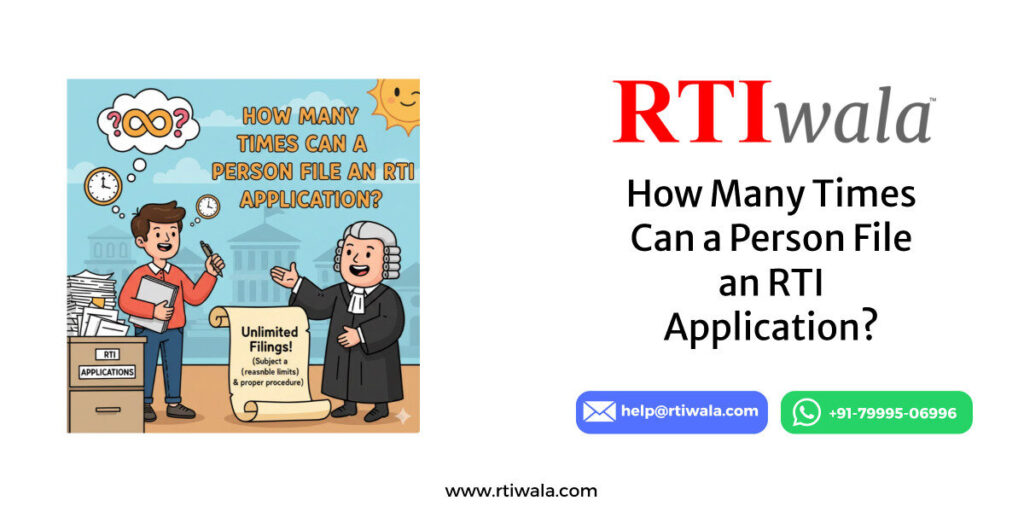
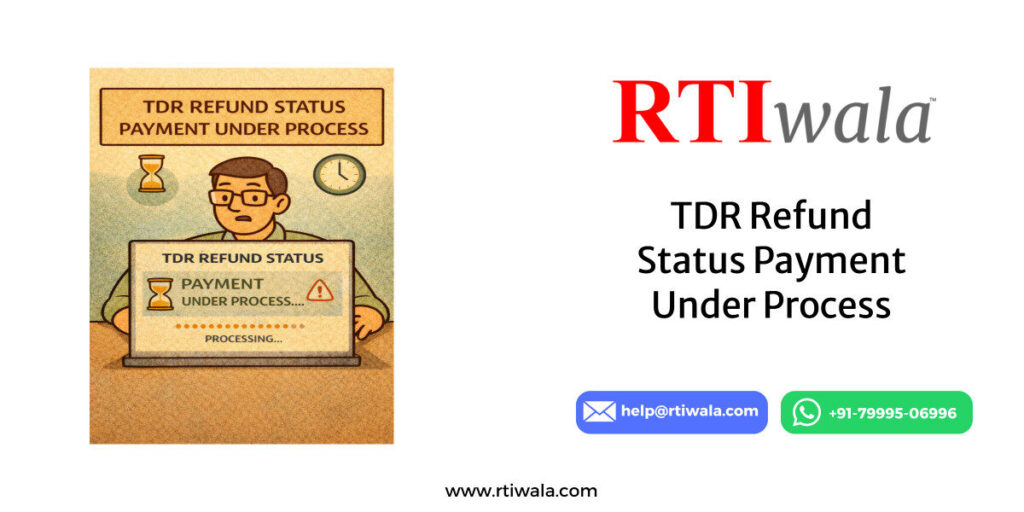

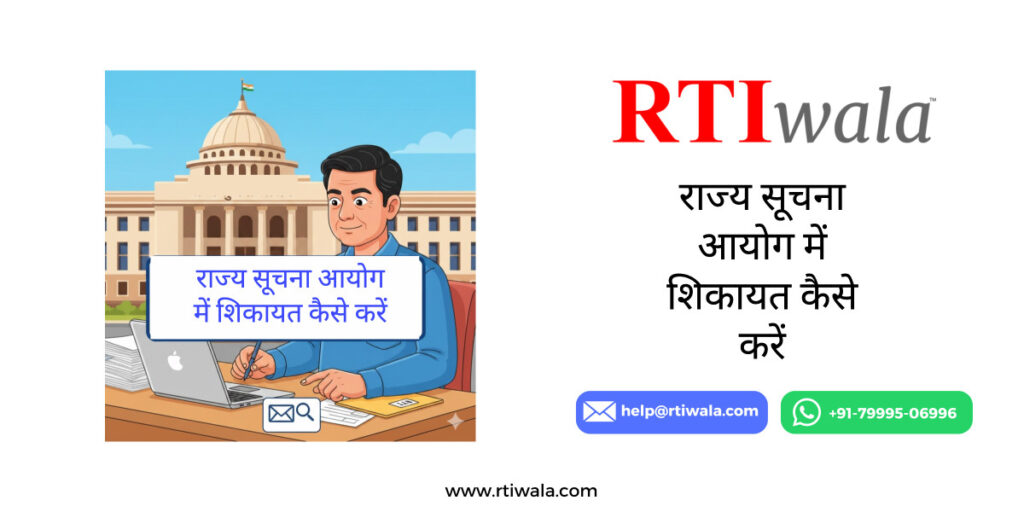


I was suggested this blog by my cousin. I’m not sure whether
this post is written by him as nobody else know such detailed about my problem.
You’re amazing! Thanks!
We appreciate your feedback! 🙏
Our goal is to make complex issues easy to understand through the power of RTI. Visit RTIwala.com
to learn more.